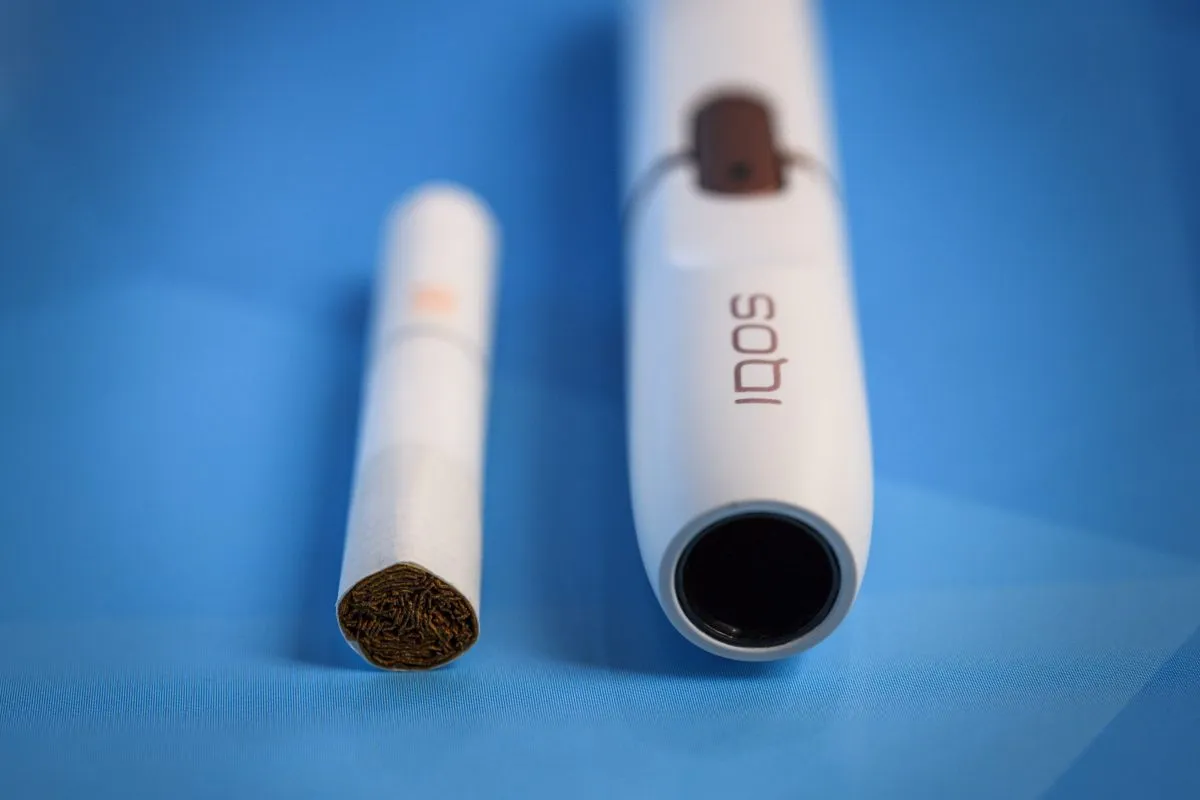
Speaking at the firm’s Technovation event in Abu Dhabi, Frederic de Wilde, PMI’s president for South and Southeast Asia, the Commonwealth of Independent States, the Middle East, and Africa region, said that Africa’s fledgling but price-sensitive smoke-free market offers opportunities for the S&P 100 firm.
“Africa definitely has a role to play and we are committed to coming up with smoke-free products to offer alternatives to African smokers,” he says.
However, he says that the price points of the PMI’s smoke-free products remain out of reach for many consumers on the continent.
“If you look at the smoke-free products we first launched, it’s a premium device retailing at a premium price. In some economies we’ve managed to penetrate pretty well but in many of the countries in my region only 5-10% of consumers can afford it,” he says.
To address this cost barrier in Africa and other developing economies, PMI is developing cheaper smoke-free products, De Wilde says.
“We’re innovating in the heat-not-burn front where we’re piloting a new simple device that is less expensive and targeted for medium and low price segments. We also have lineups in the e-cigarette fronts. This could become one of the biggest successes for smoke free alternatives in developing economies,” he notes.
Winning over sceptical regulators
Despite promising market opportunities for PMI’s smoke-free products in Africa, the policy and regulatory landscape on the continent remains challenging. The environment is fragmented, with each country adopting its own approach to tobacco regulation.
Additionally, some policymakers remain ambivalent about smoke-free alternatives, often categorising them alongside traditional cigarettes.
“What I see in Africa and some developing economies is that governments are banning these products even before they are launched,” De Wilde says.
Even when the products are allowed into the market, challenges still persist because of how regulators view smoke-free products, he adds.
“Authorities have not yet put into the regulations the overall harm reduction equation, so very often they let these products come to the market but they treat them like cigarettes.”
Winning trust with regulators demands education about smoke-free products, De Wilde says.
“Very often we hear people say there is no science, or there is no independent science. Actually it is not correct. The people saying that should take the time to review the science that is publicly available,” he argues.
“Eleven independent state authorities have reviewed our science, including the FDA (Food and Drug Administration) in the US, which granted a modified risk tobacco product authorisation in the US.”
The UK’s National Health Service says that using e-cigarettes – otherwise known as vaping – “is not completely risk-free, but it poses a small fraction of the risk of smoking cigarettes…E-cigarettes do not produce tar or carbon monoxide, two of the most harmful elements in tobacco smoke. The liquid and vapour contain some potentially harmful chemicals also found in cigarette smoke, but at a much lower level.”
However, it adds that “the long-term risks of vaping are not yet clear.”
New products for existing smokers
De Wilde notes that another crucial aspect of gaining African regulators’ trust is to clearly communicate that these are not new products aimed at attracting new consumers. Instead, they are products that have been around for a decade and are designed for existing smokers, he says, with the goal of reducing the health risks they currently face.
“These are new products for the existing smokers. When we engage with regulators and they realise the size of the population we’re talking about – the smokers – they become more receptive,” he says.
De Wilde contends that raising awareness, initially among authorities and subsequently among consumers, is crucial for encouraging more African smokers to switch to alternatives. He argues that this effort requires relaxing marketing restrictions on smoke-free alternatives, which he says should not be classified in the same category as traditional cigarettes.
“Informing people is the first stage. We can do our part there but authorities can help. When people are aware of the damages that smoking can cause, they need to be aware of the new alternatives.”
“To be aware of the new alternatives, we need to at least have the marketing freedom to talk to them, to interact with them, to let them try the product and to follow up for a couple of weeks with them,” he concludes.
Source:https://african.business/2024/12/trade-investment/tobacco-giant-pmi-aims-for-cheaper-smoke-free-products-in-africa
电子雾化与HNB产品都是新型电子产品,结构虽小,却融合应用多种材料、表面处理、芯片电子等技术工艺,而且雾化技术一直在不断更迭,供应链在逐步完善,为了促进供应链企业间有一个良好的对接交流,艾邦搭建产业微信群交流平台,欢迎加入;Vape e-cigarettes (VAPE) and Heat-Not-Burn e-cigarettes (HNB) are both emerging electronic products. Despite their compact size, they integrate various materials, surface treatment technologies, chip electronics, and other advanced technical processes. Moreover, atomization technology is constantly evolving and the supply chain is being progressively perfected. To facilitate good communication and networking among supply chain enterprises, Aibang has established an industry WeChat group communication platform and warmly welcomes interested enterprises to join.

